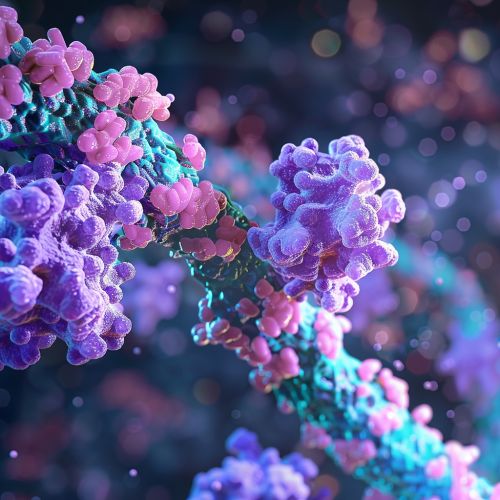Integrins
Overview
Integrins are a family of cell adhesion proteins that mediate the attachment between a cell and its surroundings, such as other cells or the extracellular matrix (ECM). They are integral membrane proteins, meaning they span the cell membrane and have parts both inside and outside the cell. This allows them to transmit signals across the cell membrane, a process known as signal transduction. Integrins play crucial roles in various biological processes, including cell migration, cell proliferation, and cell differentiation.


Structure
Integrins are heterodimeric proteins, composed of two different subunits, known as the alpha (α) and beta (β) subunits. Each subunit spans the cell membrane and has a large extracellular domain, a single transmembrane domain, and a short cytoplasmic domain. The extracellular domain of the integrin protein is responsible for binding to specific ligands in the ECM, while the cytoplasmic domain interacts with various intracellular proteins and is involved in signal transduction.
Function
The primary function of integrins is to mediate cell adhesion. However, they are also involved in a variety of other biological processes. For example, they play a crucial role in cell migration, a process that is essential for wound healing, immune response, and embryonic development. Integrins also regulate cell proliferation and differentiation, and they are involved in the formation of cellular structures such as focal adhesions and hemidesmosomes.
Role in Disease
Abnormal integrin function can lead to a variety of diseases. For example, mutations in integrin genes can cause diseases such as glomerulonephritis, a type of kidney disease, and leukocyte adhesion deficiency, a rare immune disorder. In addition, integrins have been implicated in the progression of cancer, as they can promote tumor growth and metastasis.
Therapeutic Target
Due to their involvement in a variety of diseases, integrins have become a target for therapeutic intervention. Several drugs that target integrins have been developed and are currently in use or in clinical trials. These include monoclonal antibodies, small molecule inhibitors, and peptide-based drugs.
